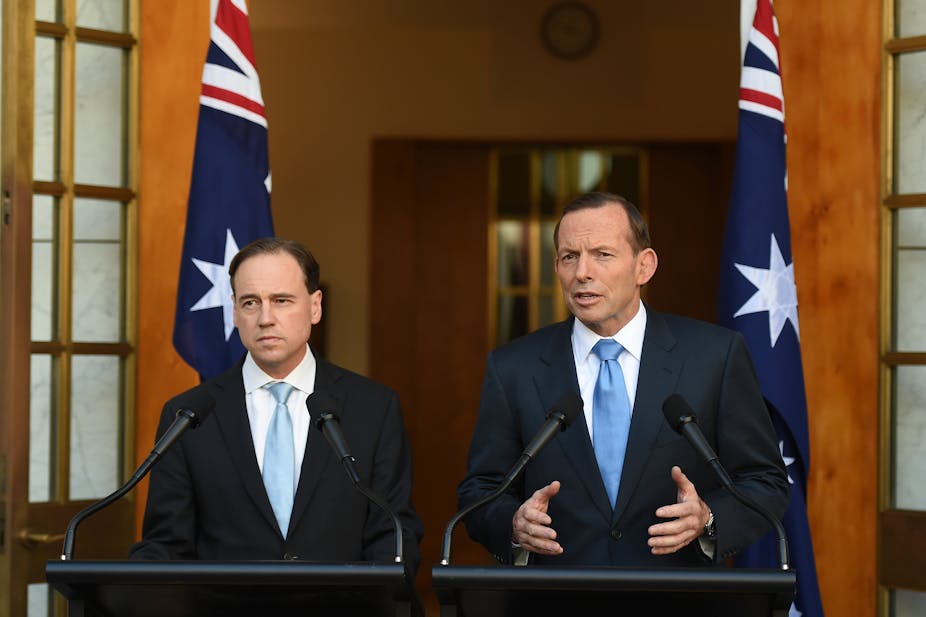Finally, after multiple hurdles and hiccups, Tony Abbott has repealed the carbon tax.
He has landed the pledge he took to two elections, delivered the policy reversal that has been most identified with his leadership.
In the process, he has wiped out a landmark economic reform and left Australia – at least for the moment – without any plan in place to combat climate change and meet the national target to which the government is committed for emissions reduction.
It is a big victory with a tart taste.
Opposition leader Bill Shorten has marked the rout of Labor’s carbon tax by declaring he’ll go to the next election committed to introducing an emissions trading scheme. This is a bold and risky move, making 2016 the third election in which carbon pricing will be central.
Shorten’s decision will be seen eventually either as a stroke of political daring and foresight - Labor consistently standing for something - or (like its GST “rollback” policy of 2001) a bad case of the ALP not knowing when to cut its losses.
Labor’s stand means Australia’s often bitter debate over a carbon price will continue.
For business, there will be yet more uncertainty, which will increase Labor’s difficulties in dealing with the corporate sector.
But there might be complications for the government too. Peak business groups welcomed the repeal “as the first step in moving towards an emissions reduction policy that works for the economy and the environment”. If international developments disadvantage high-polluting countries, business could over coming years want and need Australia to be as “green” as other nations.
Of his four-part election mantra, Abbott has made good on scrapping the carbon tax and stopping the boats. He has begun the roads program. But repairing the budget has become a political nightmare, with savings worth billions of dollars potentially or actually blocked by a truculent Senate, and the public angry and alienated.
Over the years the Coalition, driven by a combination of ideology and expediency, has been on both sides of the carbon pricing argument, though mostly on the side of poor policy. John Howard opposed carbon trading only to embrace it in an attempt to combat Kevin Rudd in the 2007 election. If Howard had won, Australia could have had a emissions trading scheme, at that point a bipartisan policy, with relatively little controversy.
But in opposition the prospect of an ETS soon became an issue of deep dispute within the Coalition. The Nationals and a group of Liberals - the true unbelievers - hated it with a passion. It contributed to Liberal leader Brendan Nelson’s downfall and eventually (with other factors) cost his successor Malcolm Turnbull his job.
Abbott – who before becoming leader described himself as a “weather vane” on an ETS and was reported telling one audience the science on climate change was “absolute crap” - used carbon pricing as a rapier in the leadership battle against Turnbull and then as a massive battering ram to help drive two Labor leaders to the ground.
Rudd could not get his ETS through the Senate, and in 2010 put it on ice. Shorten has twice said this week Labor was wrong not to go to a double-dissolution election on it. Julia Gillard brought in carbon pricing but her credibility was fatally wounded by her 2010 “no carbon tax” broken promise.
In the unfortunate demise of Australia’s carbon price Rudd, Gillard and the Greens (who put purism ahead of potency in the Rudd years) are among many players who can be blamed for missteps and failures.
But Abbott, the executioner, the triumphant winner, is likely to be condemned by history for his success in ridding the country of what he describes as “this toxic tax” - “a useless destructive tax which hurt families’ cost of living and which didn’t actually help the environment”.
In the years when public opinion (at home and abroad) moved back from its earlier belief in the priority and urgency of action on climate change, Abbott was in the mainstream of the retreat. But now there are indications the wind is changing again. Australian polls show more concern. There are new signs of international progress.
In the shorter term, Abbott will be held to account for his claims about the benefits of repeal to families. He has set a tough and precise benchmark - $550 in relief over the coming year for the average household. Most immediately the government faces the challenge of getting its “direct action” policy (described by Shorten as “a mandate from the flat earth society to give a lot of money to big polluters”) through the Senate or, if it can’t, finding an alternative way to implement it.
Abbott has been on an extraordinarily long journey to end Australia’s carbon price. He has reached his destination, but it is not the end of the story.

